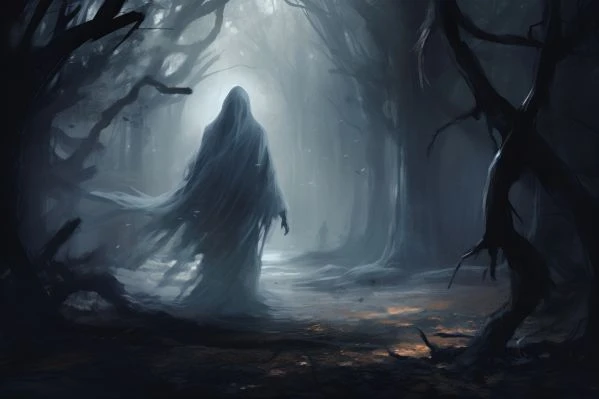时间:2025-11-04 22:00:23 来源:网络整理 编辑:旅游
Reading Hendrik Willem van Loon's masterpiece The Story of Mankind feels like embarking on an extrao
Reading Hendrik Willem van Loon's masterpiece The Story of Mankind feels like embarking on an extraordinary time machine journey through the collective memory of our species. This seminal work, first published in 1921, remains astonishingly relevant as it weaves together the grand tapestry of human civilization with remarkable clarity and warmth. The book's enduring appeal lies not merely in its historical facts but in how it makes us feel connected to every ancestor who ever walked this earth.
Van Loon performs something akin to literary alchemy by transforming dry historical events into living, breathing stories. His account of ancient Egypt doesn't just describe pyramids but makes us hear the chisels of stone masons and smell the papyrus in scribes' workshops. The chapters on Renaissance Europe don't simply list inventions; they capture the electric excitement of human minds breaking free from medieval constraints. This narrative approach turns history from a cold chronology into what it truly is - an epic drama starring every one of us.

What makes The Story of Mankind particularly compelling is its panoramic perspective. Van Loon doesn't isolate civilizations but shows their intricate interconnections. The silk routes become visible threads stitching together empires, while philosophical ideas flow like underground rivers between cultures. This global viewpoint was revolutionary for its time and remains essential today when understanding our shared heritage matters more than ever.

The book reveals patterns that persist across millennia - our endless struggle between cooperation and conflict, between curiosity and dogma. Van Loon's treatment of the Scientific Revolution highlights how hard-won each advancement was, how each new truth had to fight its way through layers of superstition. His account of the printing press's impact makes us appreciate our current information age as another chapter in humanity's eternal quest for knowledge dissemination.

Historical giants become relatable characters in van Loon's hands. When describing Napoleon's exile, he focuses not on battlefield statistics but on the emperor staring at the ocean, a once-mighty ruler reduced to a lonely man. These moments give The Story of Mankind its emotional power, reminding us that history isn't about abstract forces but about people with dreams and disappointments not unlike our own.
In our fragmented digital age, van Loon's work offers something precious - a sense of continuity. Reading about the perseverance of Renaissance artists or the courage of early explorers puts our modern challenges in perspective. The book becomes a mirror showing that while technologies change, human nature remains remarkably consistent. Our ancestors faced pandemics, climate shifts, and social upheavals too; their resilience whispers encouragement across the centuries.
The true magic of The Story of Mankind lies in how it makes history feel personal. When van Loon describes a medieval peasant or a Phoenician trader, we recognize ourselves in their hopes and struggles. This remarkable book doesn't just tell us about humanity - it helps us understand what being human truly means across time and space. That revelation makes it not just a history book but a timeless meditation on our shared human condition.
《刘伯成故事:一位传奇人物的智慧与人生启示》2025-11-04 21:55
《神话故事:穿越千年的心灵密码与人性启示》2025-11-04 21:51
经典品德故事读后感:那些照亮心灵的精神火种2025-11-04 20:53
那些照亮人生的故事:从名人传记中汲取生命智慧2025-11-04 20:47
地球的故事:一部震撼心灵的宇宙史诗与人类启示录2025-11-04 20:35
《算筹故事:穿越千年的数字智慧与文明密码》2025-11-04 20:20
《当女性故事成为时代的镜子:那些让我们泪流满面的觉醒时刻》2025-11-04 20:20
《在橄榄枝与月桂叶间穿行:希腊文化故事中的永恒回响》2025-11-04 19:57
沁阳与泌阳:一场跨越千年的地名误会引发的文化思考2025-11-04 19:35
《金乌故事:一场跨越千年的心灵震撼与人性叩问》2025-11-04 19:19
那些让我们热泪盈眶的教育瞬间:当爱与坚持改变命运2025-11-04 21:31
《做人与故事:在文字中寻找生命的共鸣与智慧》2025-11-04 21:26
《小学读故事书如何写出打动人心的读后感?这些技巧让孩子爱上写作》2025-11-04 20:58
《廉洁小故事中的大智慧:从微光见明月的道德启示》2025-11-04 20:52
《5个触动心灵的少儿品德故事,让孩子在阅读中学会爱与担当》2025-11-04 20:33
那些照亮人类历史的伟人故事:从传奇人生中汲取永恒智慧2025-11-04 19:55
《郭猛的故事:一个平凡英雄如何用坚韧照亮生命》2025-11-04 19:45
《劳动铸就人生:从平凡故事中读懂不平凡的力量》2025-11-04 19:27
《从转移就业好故事中读懂中国劳动者的韧性与智慧》2025-11-04 19:17
《白乌鸦童话故事:一场关于异类与救赎的心灵震撼》2025-11-04 19:16